Originally published on International Institute for Religious Freedom
Dr Dennis P. Petri became International Director of the International Institute for Religious Freedom (IIRF) in June 2021. Petri has a PhD in Political Philosophy from Vrije Universiteit Amsterdam. He currently teaches at The Hague University of Applied Sciences (Netherlands), the Latin American University of Science and Technology (Costa Rica), and the Latin American Faculty of Social Sciences (UNESCO). He previously focused on religious freedom, peace building and social development for a variety of organizations, including Open Doors International, the European Office of the Inter-American Development Bank, and the Arias Foundation for Peace and Human Progress in Costa Rica. Petri founded the Observatory of Religious Freedom in Latin America (OLIRE) as a research, training, and advocacy program, with the mission of promoting religious freedom on the continent. Executive Editor, Prof Dr Janet Epp Buckingham, interviewed Petri on his vision for the future of the IIRF.
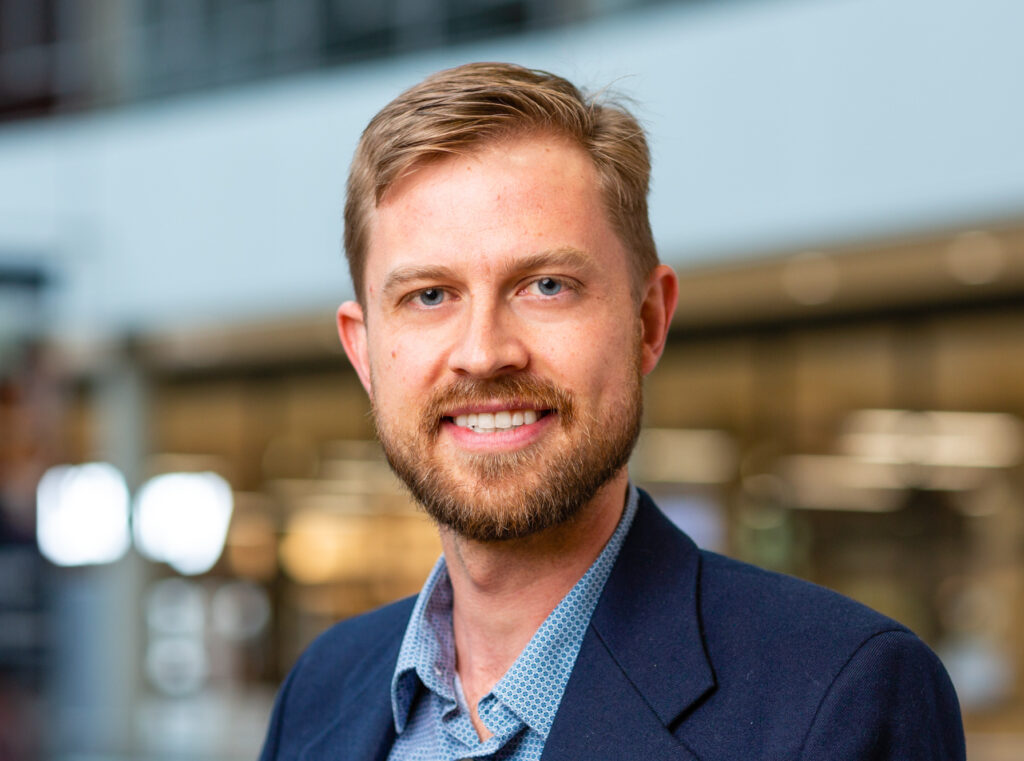
Q. You have an impressive background in research and experience in the promotion of religious freedom. What are the most significant skills and abilities you bring to the IIRF?
It’s a huge honor and responsibility to have been asked to serve as International Director. I would like to thank Thomas Schirrmacher and Christof Sauer, the founders of the IIRF, for their trust and support. I would also like to pay tribute to their legacy. They are both extraordinary visionaries who since 2007 have grown the IIRF to become the worldrenowned think tank it is today. Over the years, Christof Sauer has also been one of my personal mentors and has coached me to become a better researcher.
What do I bring to the IIRF? As a political scientist, researcher, and international consultant, I have worked in both academic and policy roles for various universities, international NGOs, and multilateral organizations, mostly in Latin America but also in Europe, Africa, and the Middle East. My academic work has always focused on applying fundamental research to solve real-life challenges, whether in the field of democracy assistance, social dialogue, parliamentary reform, conflict resolution or, for the past ten years, religious freedom. Having one leg in academia and one leg in policy gives me the ability to establish bridges between these two worlds, which is also an essential feature of the IIRF’s central mission of providing high-quality academic research on religious freedom to inform advocacy.
My doctoral dissertation, entitled The Specific Vulnerability of Religious Minorities, which was published in 2021 as part of the IIRF Religious Freedom Series, is a good example of the value of the dialogue between academia and the policy
world. It explores how invisible forms of religious freedom violations can be documented better and what practitioners can do to build resilience within vulnerable religious groups and raise awareness of their situation worldwide.
At the IIRF, which has a global presence with branches in all continents, we also need to build intercultural bridges. My background as a Dutchman who was born in Mexico, was raised in Indonesia, Mali, Romania, and Bolivia, and has lived in France, the Netherlands, and Costa Rica gives me a unique capacity to adapt quickly to different cultural environments and to function as a bridge between cultures.
I also have a passion for building bridges between believers and the secular world. I am convinced that believers should not “preach to the choir” but should engage in an open debate with secular academics, policymakers, and journalists on what is dear to them in their religious beliefs and about the meaning of religious freedom. The secular world should also develop a sensitivity to the practical meaning of religious freedom. Fortunately, this is happening more and more.
Finally, I particularly enjoy pioneering new projects and processes, as I did when I initiated the Observatory of Religious Freedom in Latin America in 2018. This skill set is important to the IIRF, which is now entering a new phase of consolidation, rebranding and expansion. I want to proactively take advantage of all opportunities to promote religious freedom from an academic perspective.
Q. Before becoming its International Director, you had already collaborated with the IIRF. Can you describe that experience?
Yes, I’ve interacted with the IIRF and its staff for a long time. When I was still working for Open Doors International, I had the privilege of working with Christof Sauer, Ron BoydMacMillan, Frans Veerman, and others in the process leading to the methodological revision of the World Watch List in 2012 to make it compliant with academic standards.
I’ve also had the opportunity to co-author several articles with Christof Sauer on the persecution of Christians in Africa in 2015 and to teach alongside Thomas Schirrmacher in 2017 at the Postgraduate Degree program on Constitutional State and Religious Freedom at Regent’s Park College (University of Oxford), a program initiated by IIRF partner organizations.
I had already contributed to several issues of the International Journal for Religious Freedom when, in 2019, you, Janet, as executive editor, invited me to be the guest editor with Govert Buijs of a special issue on “The Impact of Religious Freedom Research.” The result was an issue packed with 13 excellent contributions on the topic, drawn from an expert panel we co-organized at Vrije Universiteit Amsterdam.
In 2011, Thomas Schirrmacher wrote an opinion article on the challenges of counting the number of Christian martyrs. He concluded,
“What we need is a database in which for any year we could enter all the known, larger cases [of religious persecution].”
This inspired me to develop the Violent Incidents Database (VID), a service to collect, record and analyze violent incidents concerning violations of religious freedom, as input for both research and policy-influencing efforts. The VID is currently being maintained for Latin American countries by my staff at OLIRE, but I am now taking it to the IIRF with the aim of making it a worldwide project, starting with Nigeria and India.
Q. What are your aspirations for the future of the IIRF?
I have aspirations in four areas. The first area is the consolidation of the IIRF’s position as a world leader in religious freedom research. We want to present the best philosophical and empirical data on religious freedom, both through research we conduct in-house and in collaboration with our partners. Our research needs to be unbiased and should aim to uncover undetected threats to religious freedom. The main added value of our research should be to enable advocacy for religious freedom for all faiths, going beyond anecdotal evidence.
In this effort, our flagship product is the International Journal for Religious Freedom (IJRF). Thanks to your leadership as executive editor and the efforts of several guest editors, the backlog of IJRF production has almost been cleared. This enables us to return to being a bi-annual publication and to focus on increasing the journal’s distribution in academic networks.
I would also like to revive the other publications of the IIRF, namely our Book Series and Reports. These are excellent outlets for junior and senior scholars to disseminate their research findings, and I would like to encourage them to take advantage of these opportunities.
Another priority for me is to develop a comprehensive information management system on religious freedom to be used by academics, policymakers, and journalists. Right now, much research is being conducted on religious freedom, both within the IIRF and beyond, but this research needs to be user-friendly and accessible. Such an information management system would comprise (a) the global Violent Incidents Database I have already mentioned; (b) a database of religious freedom indicators; (c) legal compendia on religious freedom clauses in international law, national constitutions, civil codes, and criminal codes; and (d) a catalogue of good practices to prevent and/or solve religious conflicts. This information management system would also provide our partners with the infrastructure to develop regional and national observatories of religious freedom.
The second area I would like the IIRF to continue to focus on is the promotion of the study of religious freedom in universities around the world. This can be done in many ways: organizing academic panels, delivering guest lectures, consulting on curriculum development, and encouraging the establishment of university-based research institutes and chairs on religious freedom.
Third, I am convinced that we should place a particular focus on promoting religious freedom literacy. We live in a world that is not exactly secularizing, because religion continues to be present in all shapes and forms, but we need academics, policymakers, and journalists to really “get” religion: why it’s important to people, why and how people suffer, and what the concept of religious freedom really entails, because it’s much more than just a theme related to the separation of church and state. Again, there are many ways in which religious freedom literacy can be promoted, but podcasts and online courses are among the strategic tools we can use.
Finally, the IIRF should continue to play a networking function, providing support and encouragement to young and experienced scholars interested in religious freedom – particularly outside North America, the one continent where religious freedom as a theme is much more embedded in academic circles than in other regions. Historically, the IIRF has had a strong presence in Africa, Asia and the German-speaking world, and my own context is Latin America, so we are off to a good start. I envision three programs as part of our networking function: (1) tutoring support for doctoral students, (2) a program for senior research fellows, and (3) collaborative work on research projects with partner organizations. In addition, starting in 2022, I want to organize quarterly roundtable discussions (virtual and in-person), publish periodic newsletters, and develop a much stronger social media presence.
Q. What are you most excited about in the next five years for the IIRF?
In the next five years, I hope to achieve at least three major things. The first is the indexing of the International Journal for Religious Freedom to increase its distribution and impact in the academic world. The second is the development of a global report on the state of religious freedom for all faiths, that goes beyond existing religious freedom datasets, particularly in terms of data collection and the conceptualization of religious freedom as a multidimensional concept. The third is to launch “IIRF University,” to deliver courses and degrees to doctoral students, senior academics, and practitioners with the objective of promoting religious freedom literacy. These may be ambitious goals, but I am convinced that they cover important needs and respond to areas where the IIRF can add value.
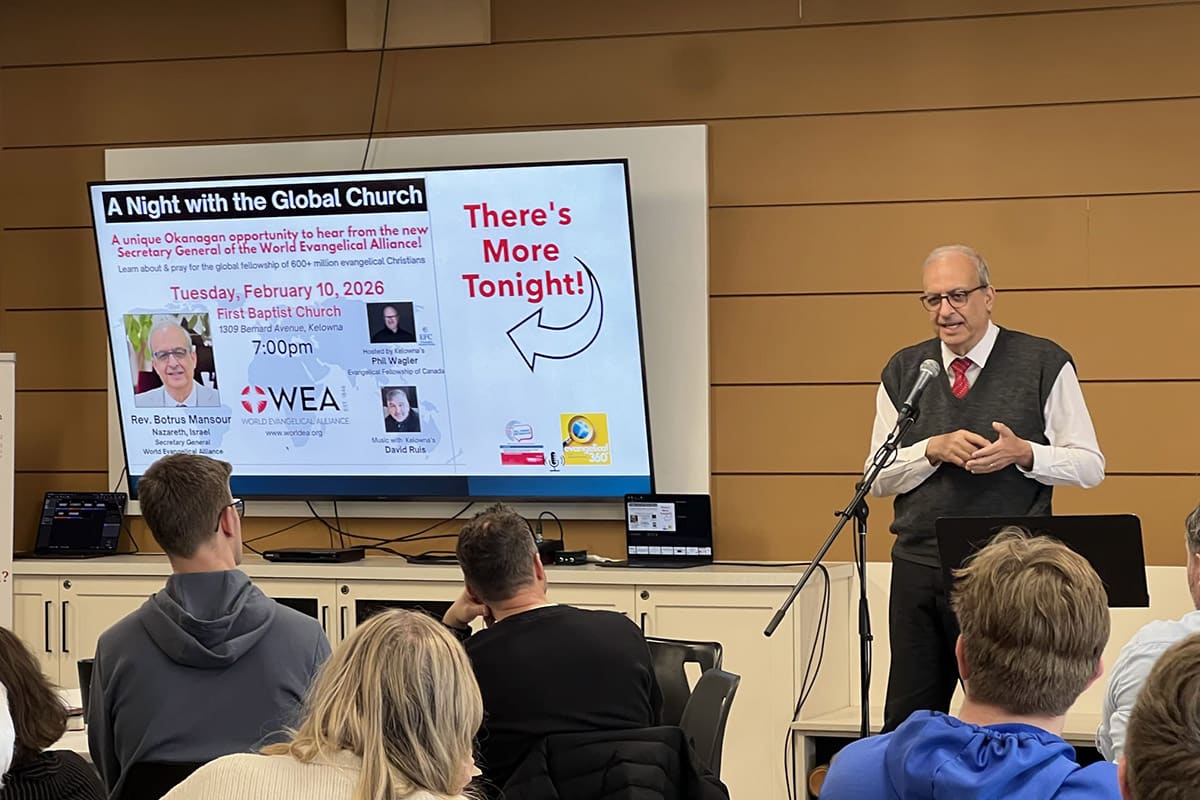
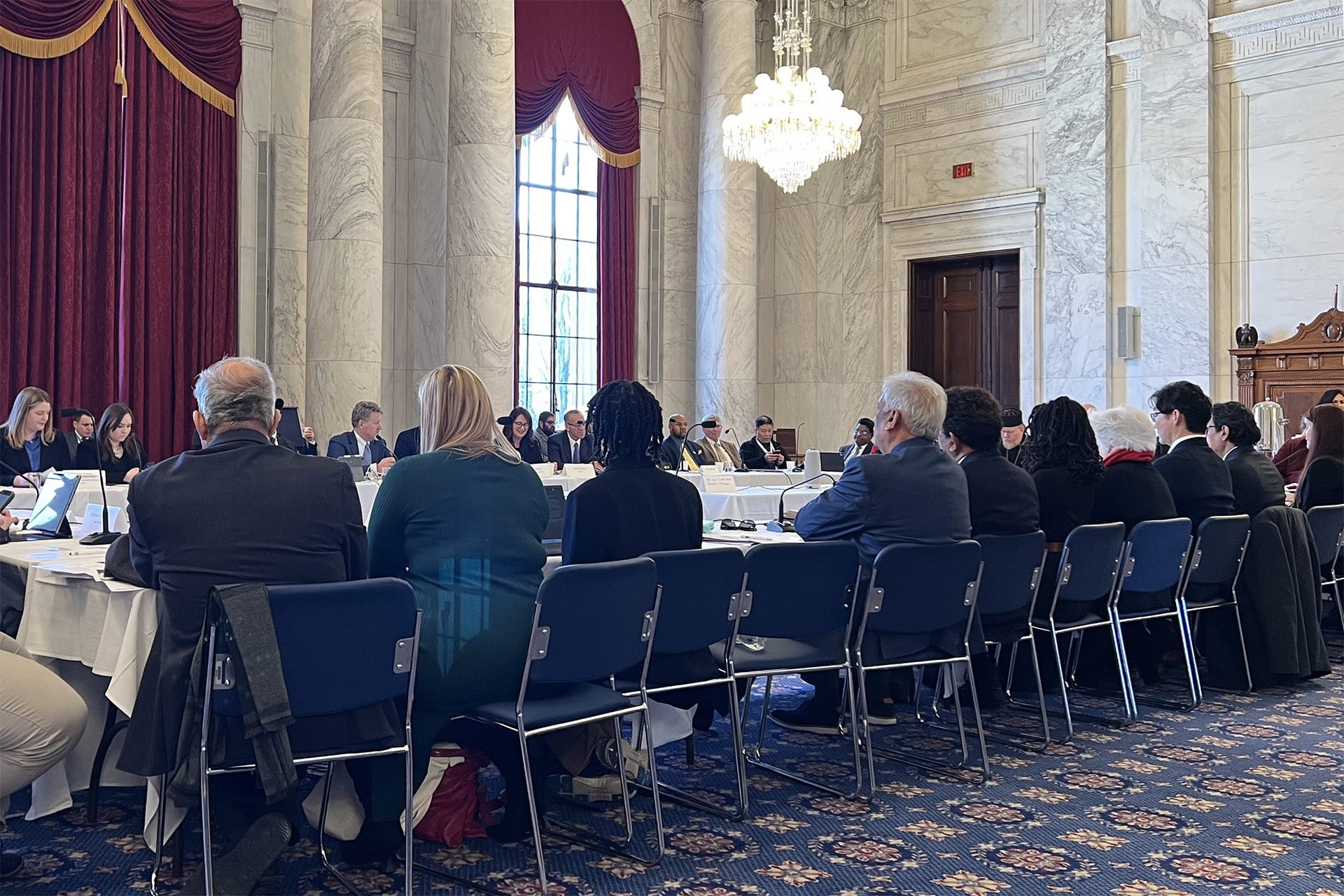
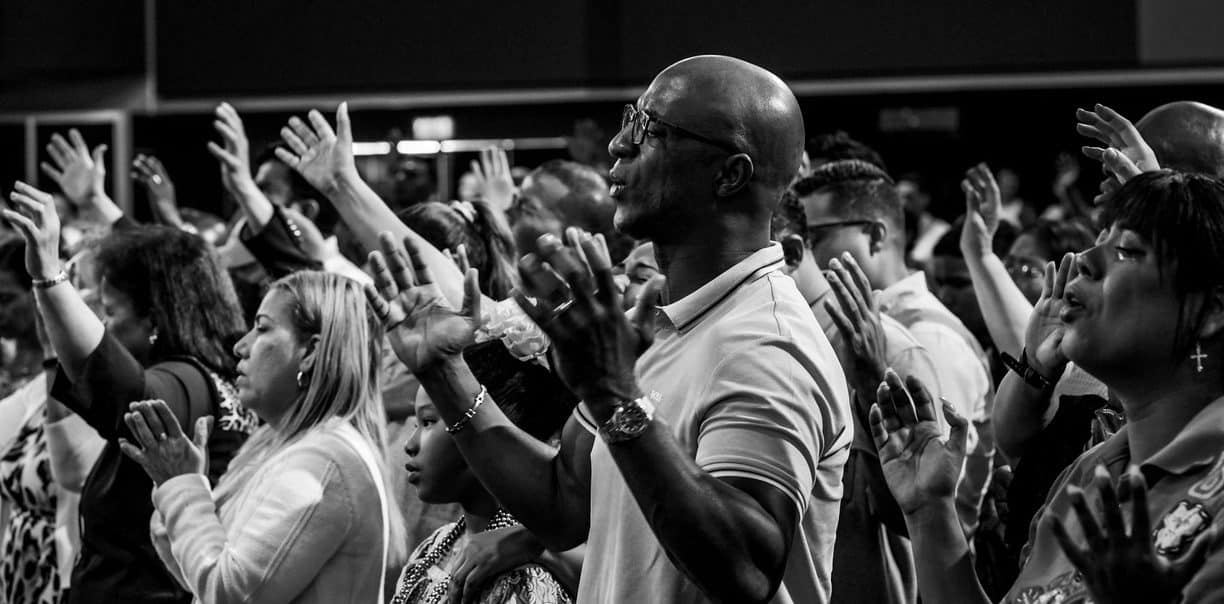
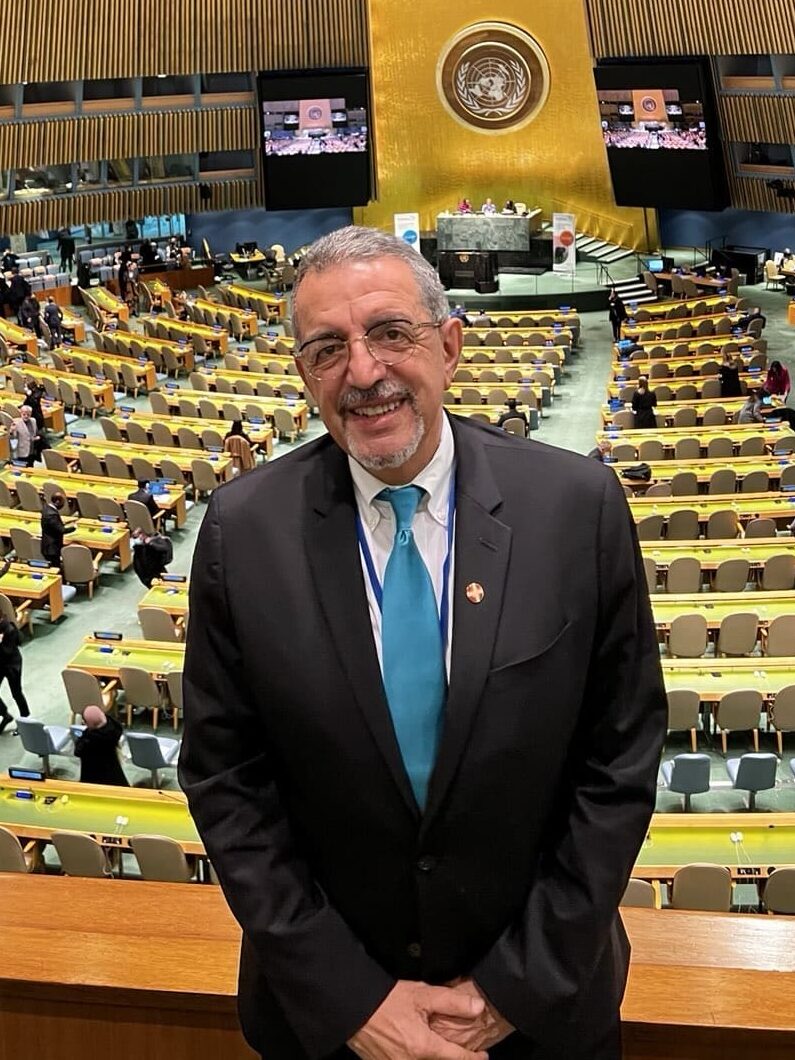

Stay Connected